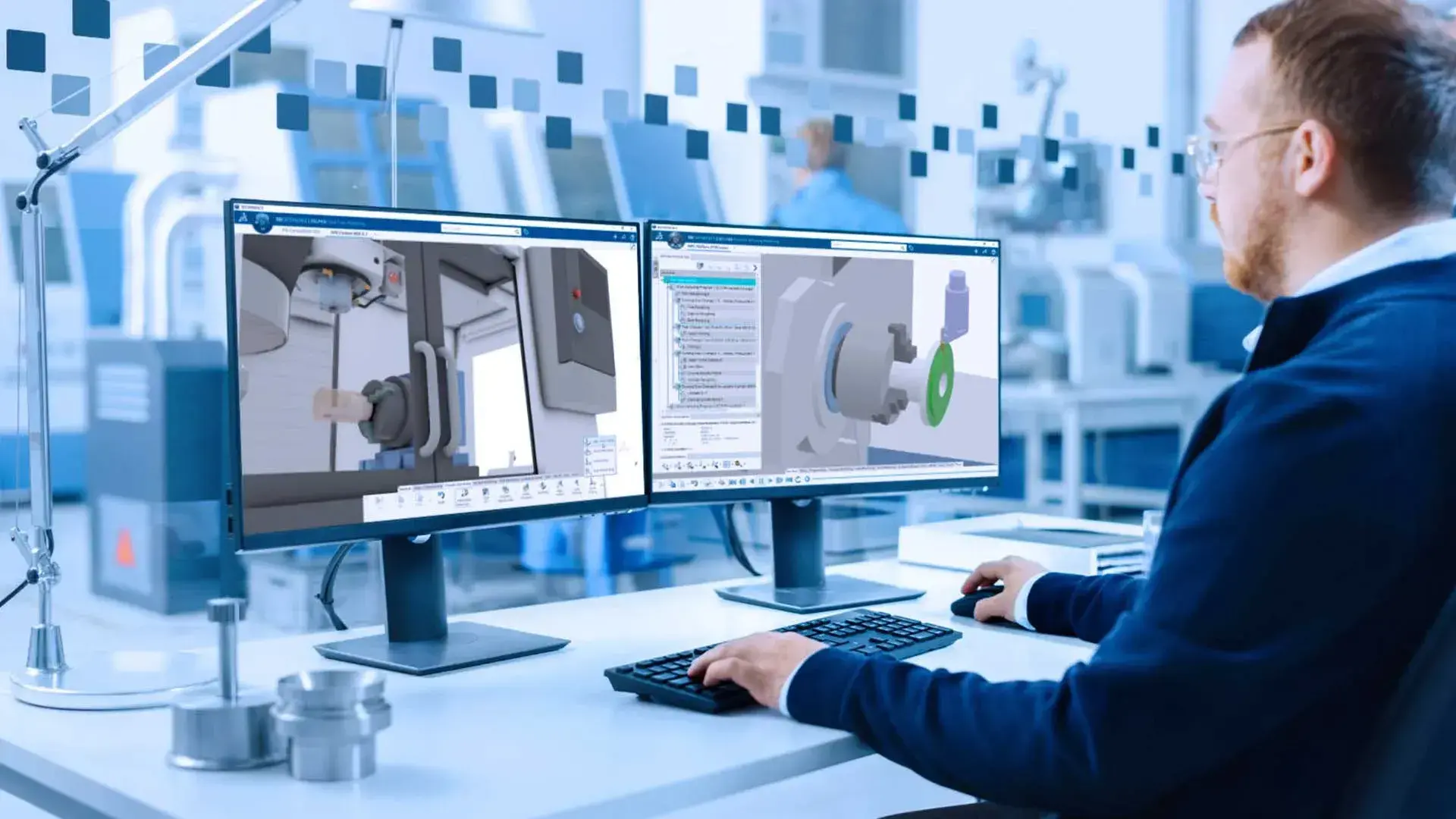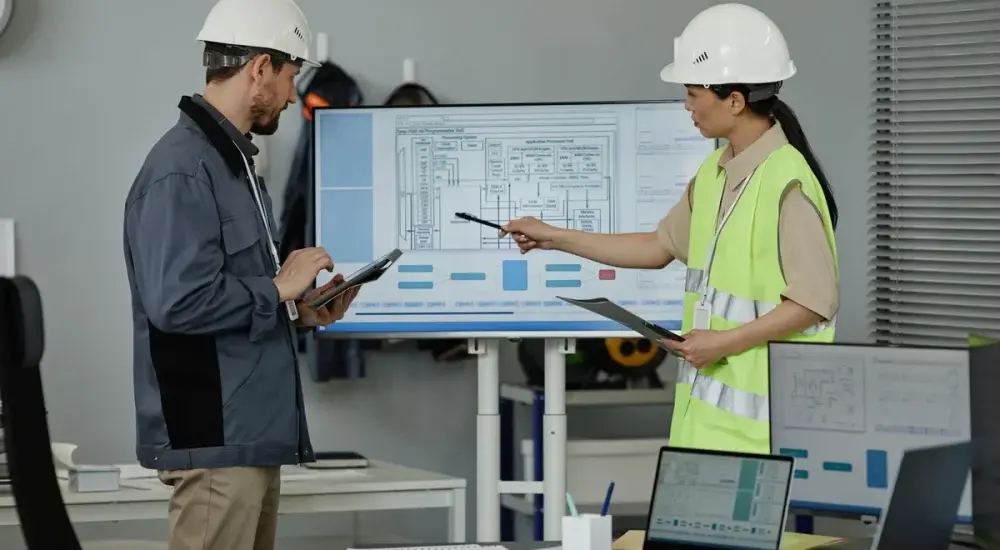
Mechanical engineers face a wide range of challenges in their careers, from keeping up with technological advancements to managing tight project deadlines and ensuring workplace safety. The field demands strong technical expertise, adaptability, and problem-solving skills. Additionally, the growing adoption of Building Information Modeling (BIM) presents new opportunities for BIM mechanical engineer, offering higher salaries and faster career growth. BIM enhances collaboration, improves project accuracy, and streamlines MEP design and construction processes.
What are the Challenges Faced by Mechanical Engineers?
BIM Mechanical engineers face a diverse array of challenges throughout their careers, requiring technical expertise, adaptability, problem-solving skills, and the ability to work under pressure. They must continually refine their skills to keep up with evolving technology, manage project deadlines, and ensure workplace safety.

1. Getting the Right Education and Training
A strong educational background is essential for a successful career in mechanical engineering. Most engineers begin with a bachelor's degree in Mechanical Engineering or a related field. However, many companies prefer candidates who go further by obtaining additional certifications, such as a Professional Engineer (PE) license.
2. Keeping Up with Advancements in Technology
With technology advancing at an unprecedented rate, BIM mechanical engineer must stay current to remain competitive. Innovations in automation, artificial intelligence, and 3D printing are transforming industries, making it crucial for engineers to stay informed and adaptable.
3. Meeting Tight Project Deadlines
Balancing multiple projects with strict deadlines is a typical challenge in mechanical engineering. Unexpected issues, such as equipment failures or supply chain disruptions, can delay progress. Engineers need strong organizational and time-management skills to stay on track.
4. Ensuring Workplace Safety
Safety is a critical aspect of mechanical engineering, especially for those working with heavy machinery, high-pressure systems, or hazardous materials. Engineers must adhere to safety regulations, wear appropriate protective gear, and participate in regular safety training.
5. Troubleshooting Equipment Malfunctions
Equipment failures can disrupt entire operations, making quick and effective troubleshooting skills essential for mechanical engineers. They must be able to diagnose problems, find solutions, and implement repairs efficiently to minimize downtime and avoid costly delays.
6. Developing Strong Soft Skills
While technical expertise is crucial, soft skills are equally important in mechanical engineering. Engineers should be able to communicate complex ideas clearly, collaborate well in teams, and lead projects effectively. Strong analytical thinking, problem-solving abilities, and adaptability are valuable traits that help engineers navigate challenges.
7. Maintaining Work-Life Balance
With demanding workloads and tight deadlines, maintaining a healthy work-life balance can be challenging for mechanical engineers. Long hours and high-pressure projects may lead to stress and burnout if not managed well. Setting clear boundaries, taking breaks, and engaging in hobbies or exercise can help engineers maintain their well-being and remain productive over time.
8. Navigating Career Growth in a Competitive Field
The job market for mechanical engineers is highly competitive, with many skilled professionals entering the field each year. To stand out, engineers should continuously expand their knowledge, pursue advanced degrees, and gain hands-on experience.
BIM Mechanical Engineer Roles: Higher Salaries and Faster Career Growth

BIM mechanical engineer roles in India offer several advantages, including higher salaries and faster career growth, due to the increasing demand for Building Information Modeling (BIM) in the construction and infrastructure sectors.
1. Higher Salaries
BIM mechanical engineer roles in India are associated with higher salaries compared to traditional engineering positions. This is due to the specialized skills required to effectively integrate mechanical systems within a Building Information Modeling (BIM) environment.
2. Salary Range
A bim mechanical engineer's salary typically ranges from ₹13.8 lakhs to ₹23.6 lakhs per year. However, top performers and those with extensive experience can reach up to ₹48 lakhs annually.
3. Location Impact
The mechanical engineer salary for BIM engineers can vary based on location. Cities like Madurai, Thrissur, and Mumbai are among the top locations offering higher salaries for BIM engineers due to the concentration of major construction projects and infrastructure developments.
4. Faster Career Growth
The career trajectory for BIM mechanical engineers is often faster and more promising compared to traditional mechanical engineering roles. This is because BIM skills are increasingly sought after in the construction and infrastructure sectors.
5. Career Advancement
BIM engineers have opportunities to transition into roles like BIM Coordinator, BIM Manager, or BIM MEP services lead. These positions not only offer higher earning potential but also provide leadership responsibilities and the chance to oversee large-scale projects.
6. Skill Development
The ability to integrate mechanical systems within a BIM environment enhances career prospects and salary potential. As BIM continues to evolve, professionals with advanced skills in this area are likely to see significant career advancement opportunities. Continuous learning and staying updated with the latest BIM software and technologies are crucial for career growth.
Overall, transitioning to a BIM role can significantly boost both salary and career trajectory for mechanical engineers in India.
Top BIM Mechanical Engineer Job Advantages
Being a BIM mechanical engineer offers several advantages, both in terms of career benefits and the value added to construction projects. Here are some key advantages:
Here are the advantages of being a BIM mechanical engineer:
1. Enhanced Collaboration
BIM enables real-time collaboration between mechanical engineers, architects, contractors, and other stakeholders. This improves communication and helps identify potential conflicts early in the process, reducing rework and delays.
2. Improved Visualization
BIM provides a 3D representation of the building, allowing engineers to visualize the end result and identify potential issues before construction begins. This enhances the overall quality of the work and reduces errors.
3. Better Cost Estimation and Management
BIM software includes tools for cost estimating and budget management. This helps engineers stay within budget and identify opportunities to reduce costs.
4. Improved Safety
BIM can simulate different construction scenarios, including potential safety hazards. This allows engineers to mitigate risks before construction begins, making the work site safer for workers.
5. Increased Accuracy
BIM software ensures accurate modeling and visualization of mechanical systems, reducing the risk of errors and rework. It also helps verify that systems meet all relevant codes and standards.
6. Streamlined Design and Construction Processes
BIM enables the creation of detailed, accurate models of mechanical systems, reducing manual calculations and site visits. It facilitates coordination with other trades and manages the construction process efficiently.
7. Improved Project Management
BIM provides a centralized platform for managing all aspects of a building project, from design to construction. This helps track progress, manage resources, and coordinate with stakeholders effectively.
8. Career Advancement Opportunities
BIM engineers can transition into roles like BIM Coordinator, BIM Manager, or Revit MEP BIM Lead, offering higher earning potential and leadership responsibilities.
9. Higher Salaries
BIM engineers generally earn higher salaries compared to traditional mechanical engineers, reflecting the value they bring to projects.
10. Stability and Work-Life Balance
BIM roles often involve working in an office setting, providing a stable and comfortable work environment with better work-life balance.
Overall, being a BIM mechanical engineer offers a combination of financial benefits, career advancement opportunities, and the ability to contribute to more efficient and accurate project outcomes.
Why Training is Essential for BIM Mechanical Engineers?

Transitioning into a BIM Mechanical Engineer role requires a deep understanding of digital workflows, industry standards, and proficiency in specialized software. Engineers must learn how to create, manage, and analyze BIM models effectively to improve project coordination and efficiency. The right training ensures that mechanical engineers can adapt quickly and leverage BIM to its fullest potential.
Novatr's BIM Course: Your Gateway to a Successful BIM Career
Novatr offers a specialized BIM course designed exclusively for mechanical engineers. This course provides hands-on experience and industry-relevant skills that are essential for excelling in the BIM domain. Engineers enrolled in this program gain exposure to real-world projects, ensuring they are job-ready upon completion.
Software Training Provided by Novatr:
- Autodesk Revit – Industry-leading software for BIM modeling and mechanical systems design.
- Navisworks – Essential for clash detection, coordination, and project visualization.
- AutoCAD – A fundamental tool for 2D drafting and technical detailing.
- Dynamo – Automation and parametric modeling for efficiency in design workflows.
- BIM 360 – Cloud-based collaboration tool for streamlined project management and team coordination.
- Solibri – Model validation, quality control, and rule-based checking to ensure compliance with industry standards.
Key BIM Skills You Will Gain from Novatr’s Course:
- 3D Modeling & Parametric Design – Learn to create intelligent mechanical components within a BIM environment, enhancing design accuracy and efficiency.
- Clash Detection & Coordination – Master the skills to identify and resolve conflicts between mechanical, electrical, and structural systems before construction, reducing costly on-site issues.
- MEP (Mechanical, Electrical, Plumbing) Integration – Develop expertise in coordinating mechanical systems with other building components to improve overall project efficiency.
- Data-Driven Decision Making – Use BIM analytics and simulations to optimize building performance, sustainability, and energy efficiency.
- Collaboration & Project Management – Gain hands-on experience with cloud-based BIM tools to work seamlessly with architects, structural engineers, and contractors in real-time.
- Automation in BIM Workflows – Learn to automate repetitive tasks using Dynamo and scripting, improving efficiency in mechanical system designs.
Conclusion
The mechanical engineering industry continues to evolve, requiring professionals to stay updated with emerging trends and technologies. While traditional roles present challenges such as troubleshooting malfunctions and maintaining a work-life balance, BIM mechanical engineers benefit from enhanced collaboration, improved project management, and higher earning potential. Investing in BIM training, such as Novatr’s Professional BIM Program for MEP Engineers, equips engineers with the skills needed to excel in this growing field. Explore the resource page for more information. By embracing innovation and continuous learning, mechanical engineers can unlock greater career opportunities and make a lasting impact in the industry.
FAQs
Q) Can a Mechanical Engineer Become a BIM Engineer?
Yes, a mechanical engineer can transition into a BIM (Building Information Modeling) engineer role. BIM is widely used in the construction industry, including MEP (Mechanical, Electrical, and Plumbing) systems, which align closely with mechanical engineering principles. To make the shift, a mechanical engineer should gain proficiency in BIM software like Revit, Navisworks, or AutoCAD and develop an understanding of building design, coordination, and project collaboration.
Q) Which Is Better, MEP or BIM?
MEP (Mechanical, Electrical, and Plumbing) and BIM (Building Information Modeling) serve different purposes but are interconnected. MEP refers to a specialized domain within construction, focusing on building systems, while BIM is a digital process used to design, manage, and coordinate construction projects, including MEP systems. If you have a strong interest in designing mechanical and electrical systems, MEP is a great choice. However, if you enjoy working with digital modeling, coordination, and project management, BIM might be the better path.
Q) What Is BIM in Mechanical Engineering?
In mechanical engineering, BIM is a digital representation of a building’s mechanical systems, helping engineers design, simulate, and analyze HVAC (Heating, Ventilation, and Air Conditioning), piping, and other mechanical components. It improves collaboration, reduces errors, and enhances efficiency in construction projects by providing accurate 3D models and real-time data integration.
Q) What Is the Next Step After Mechanical Engineering?
The next step after mechanical engineering depends on your career goals. You can pursue a job in core mechanical fields like manufacturing, design, or automation or specialize further through certifications or a master’s degree in areas like robotics, thermal engineering, or automotive design. If you're interested in construction and digital modeling, moving into BIM or MEP engineering is also a promising option.
Was this content helpful to you







